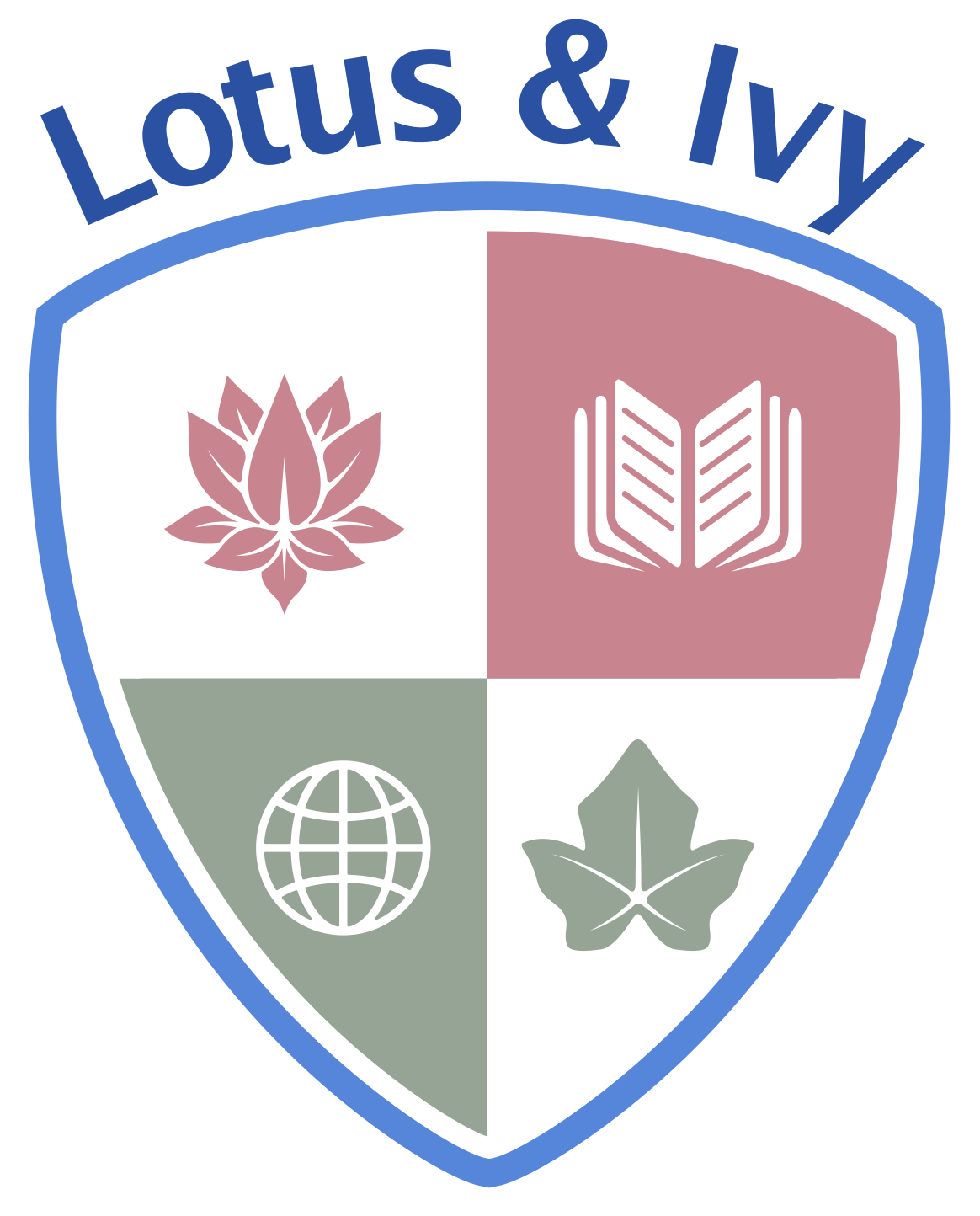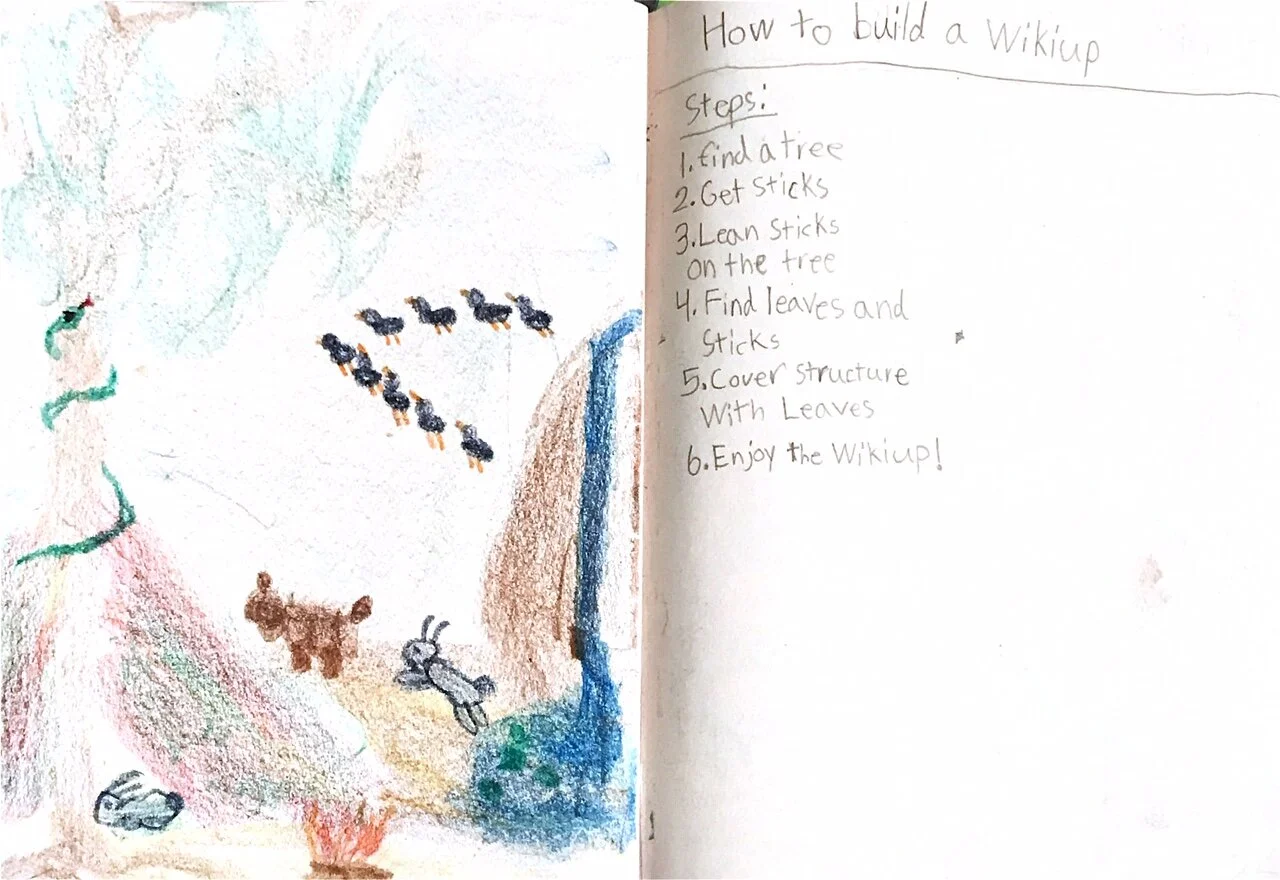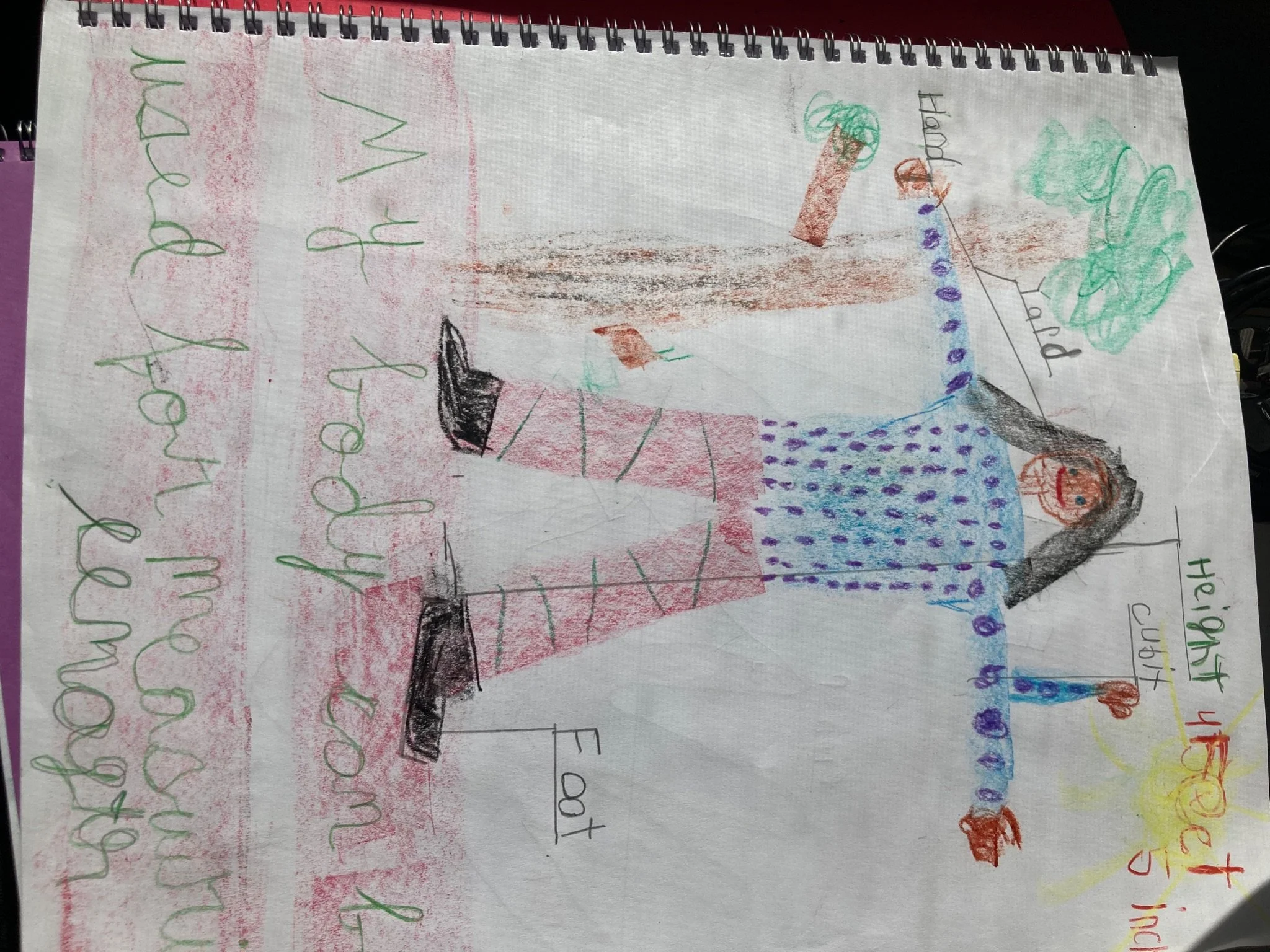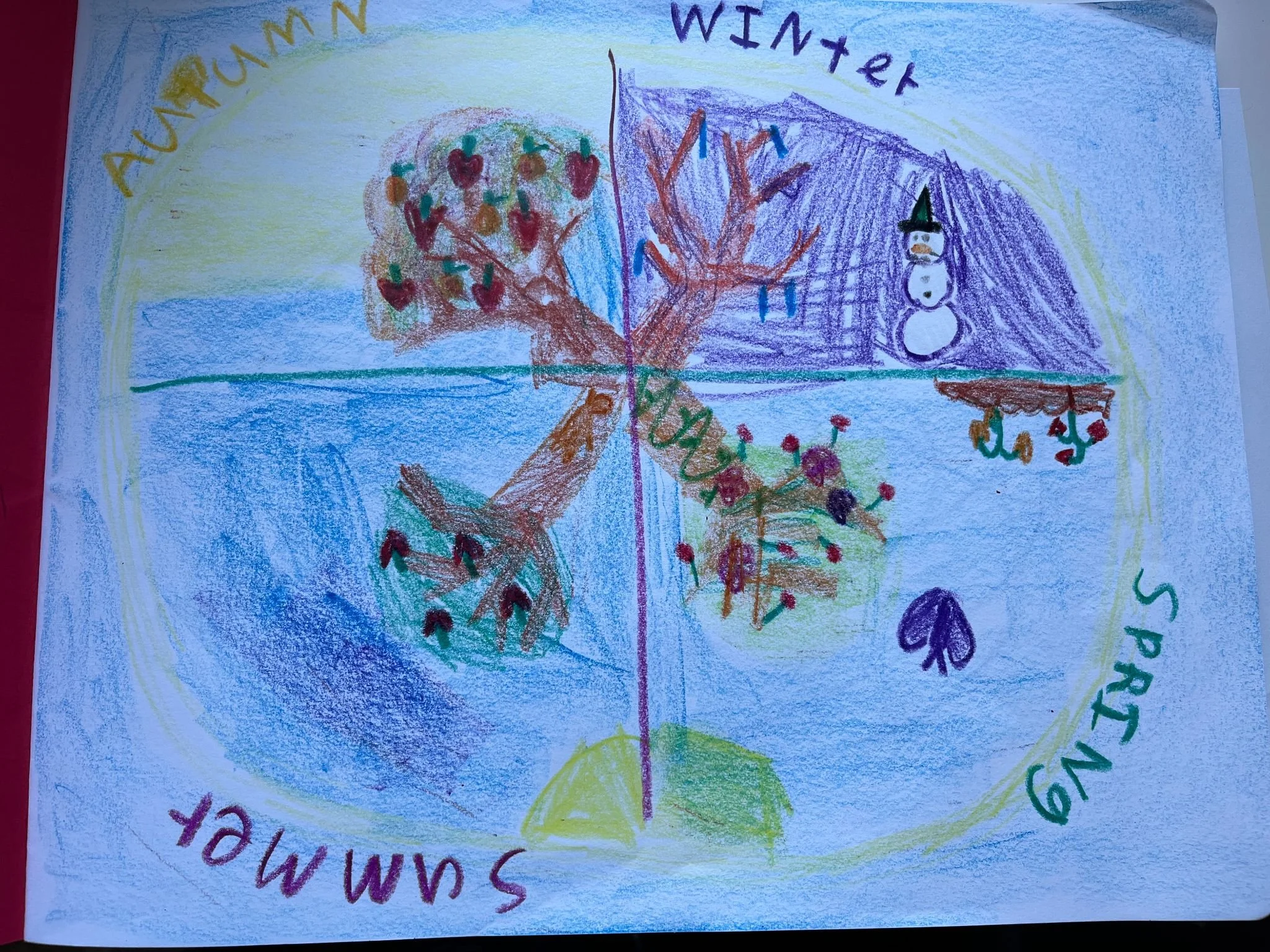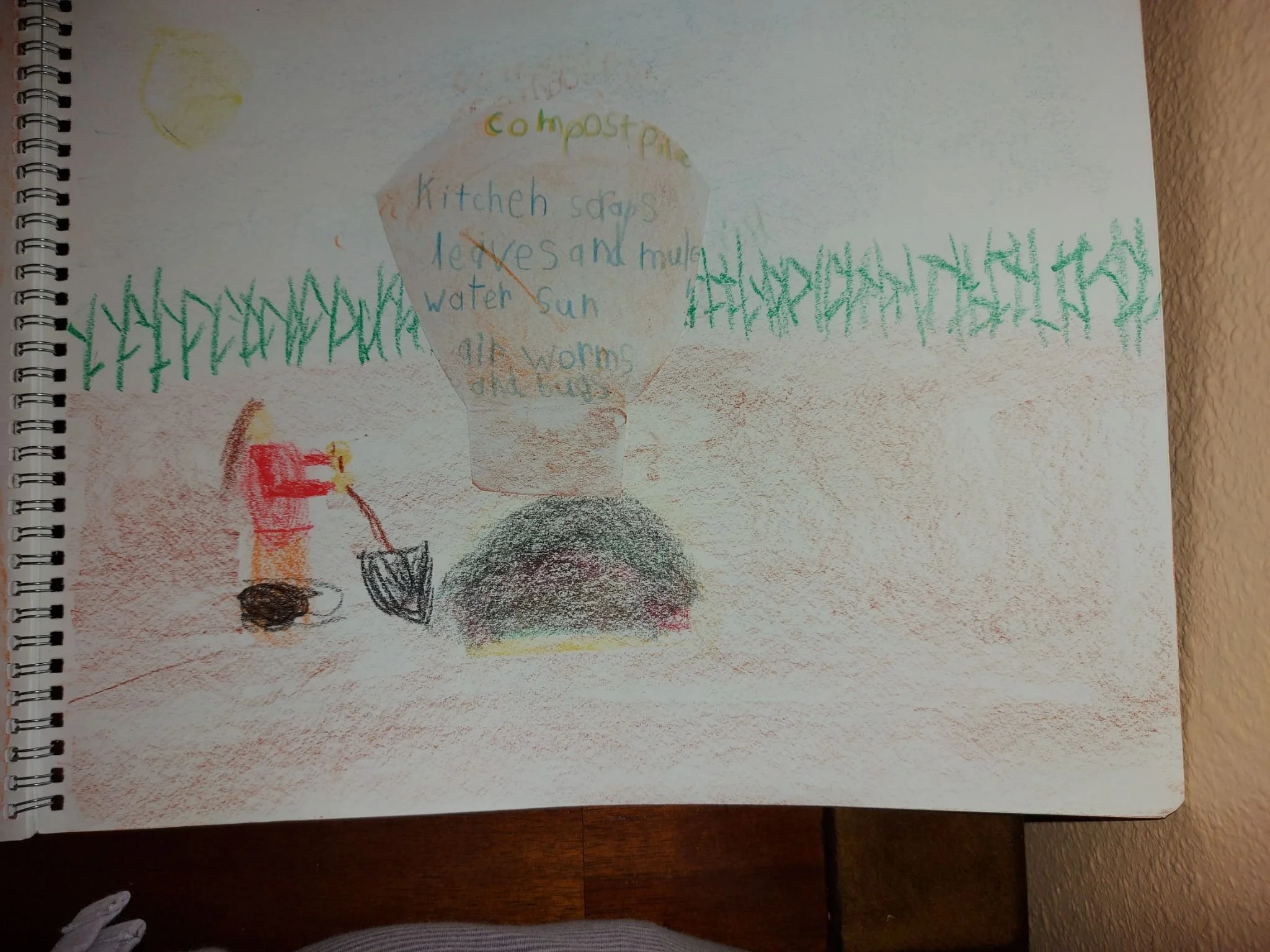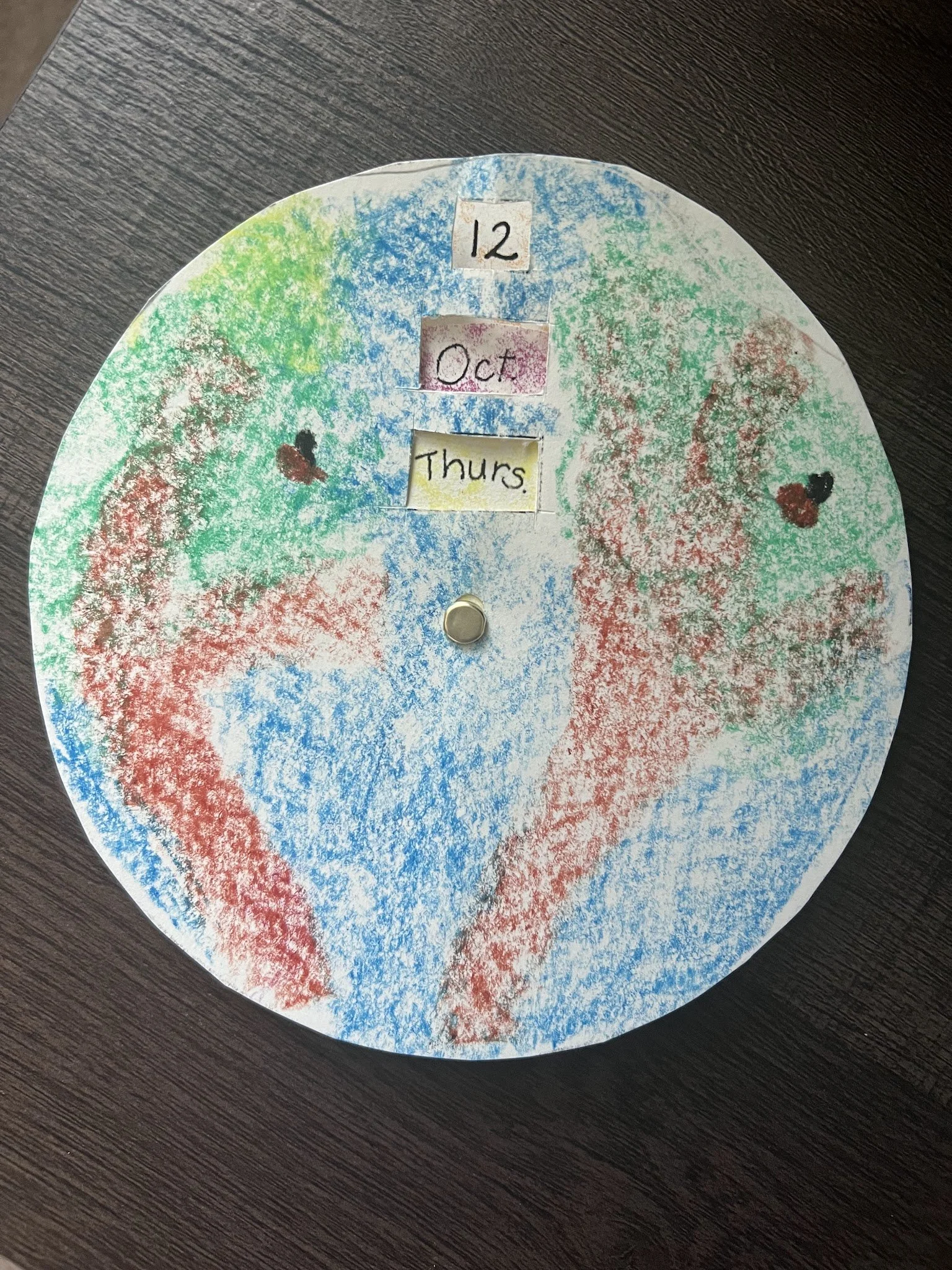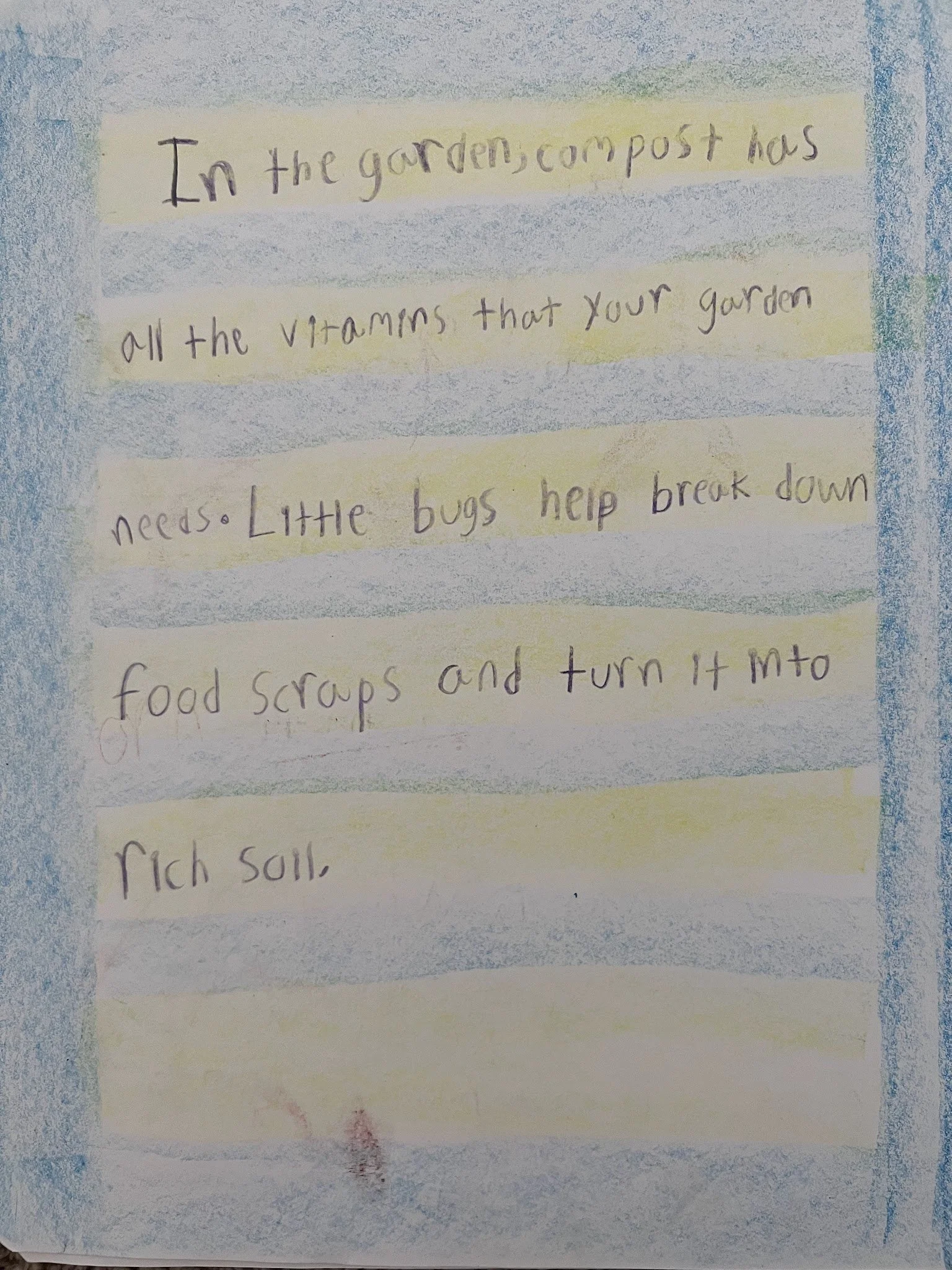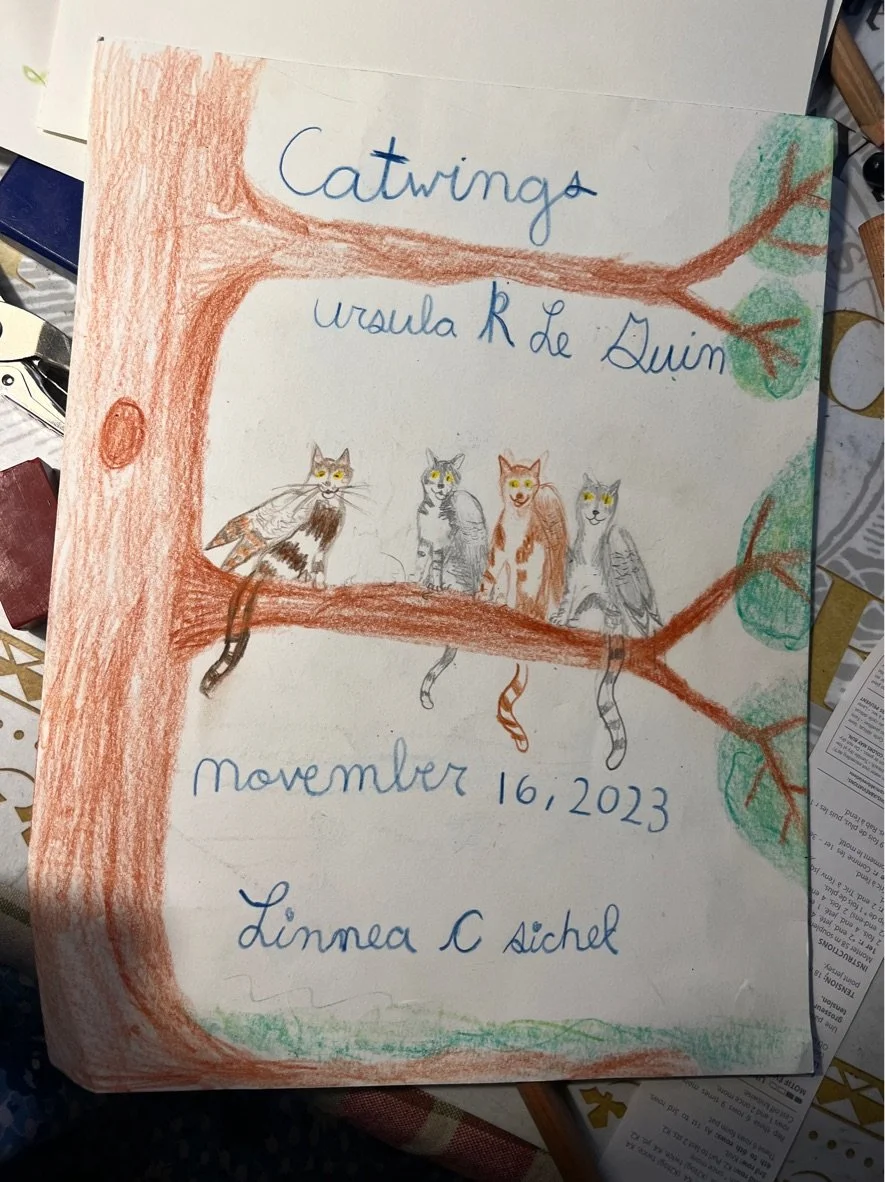Class 3 Main Lesson
in order to begin Class 3 in the fall, the student must have turned 8 by May 1st of that year.
Around the age of nine comes a very important psychological change, often called “the nine year change.” The child has a stronger sense of his or her own individuality or identity and begins to see the humanity of his or her parents who were once thought to be infallible. The child may feel a bit isolated from family and friends and therefore needs more empathy and security from teachers and parents. The creation and origin stories from around the world give the nine-year-old a sense of wonder for what the world holds, helping the child see that the world is a beautiful place.
Our Grade 3 maximum class size is 14 students, allowing the teacher to get to know each student and to foster a school-family environment during class.
Language Arts
Approaching the learning of reading and writing through story helps each child connect to the rules through their soul life or creative forces. The range of growth in spelling, grammar and writing essays is enormous from the beginning of the year to the end. The children gain confidence in reading, and transform from “learning to read” to “reading to learn.” Grade 3 Language Arts Skills Class offers expanded practice in grammar, phonics, essay writing and spelling skills.
Math
The G3 Math Main Lessons focus on mastery of math facts and times tables, the four processes, regrouping, and place value early in the year while incorporating imaginative story for a rich holistic math approach. Math Main Lesson topics center around experiencing measurement through observation and activity. The first tool we use to measure is our body. Then making scales, clocks, calendars, containers and rulers offer hands-on activities to experience measurement. Other new concepts introduced in third grade include vertical multiplication with one and two digits, and an introduction to simple division. G3 Math Skills Class offers the practical application of introduced concepts with word problems and puzzles involving all of the concepts learned in the main lesson.
Science
During “Living on the Earth'' Main Lessons blocks, children learn what it takes to take care of themselves and the earth. Questions are explored such as where does food come from? How is clothing made from natural resources? Where do human beings across the globe find the materials to build their homes? Farming and Grains, Textiles, and Shelters Blocks offer a practical foundation for scientific, as well as cultural, study and give the children tools needed to understand and manage their growing independence.
Well-rounded curriculum
With the required weekly homework and grown-up support to individualize the experience, the curriculum fulfills a year-long homeschool requirement for language arts, math, science, and social studies. Third Grade is an important time of skill development in preparation for more complex math, chapter books, essay writing and research in future grades. While Main Lesson introduces topics through story, drawings, imagination and practical experiences, further practice is required to gain mastery of the concepts. Math Skills Class and Language Arts Skills Class adds additional practice in skills introduced during Main Lesson. Attending Skills Classes with your Main Lesson offers a well-rounded approach to your child’s experience of third grade. We recommend registering for both skills classes. For more information about our Math & Language Arts Skills Practice Classes, click here.
Lotus & Ivy also offers Complement Classes in addition to our Main Lesson and Math & Language Arts Skills Practice class Classes. Our Complements for this age include Spanish, German, pentatonic flute, woodwork, and handwork. Students meet once a week with their teacher for these Complement Classes. Families may enroll in as many Complement classes as they like.
Students may enroll in Lotus & Ivy Main Lesson Classes, Math & Language Arts Skills Practice class, or Complement Classes or any combination of the three. Lotus & Ivy recommends that students take all three offerings for the most comprehensive experience, providing hands-on and experiential learning at its best.
Please note:
Main Lesson classes and assignments will use cursive handwriting beginning in the second semester. Students are expected to be proficient before then. Please sign up for the third grade cursive class or parents should teach cursive throughout the first semester. Resources can be provided by your class teacher.
*here is an article explaining what learning cursive does for the brain*
Complement Classes
Our Complements for this age include Spanish, German, pentatonic flute, woodwork, and handwork. Students meet once a week with their teacher for these Complement Classes. Families may enroll in as many Complement classes as they like.
Students may enroll in Lotus & Ivy Main Lesson Classes, Math & Language Arts Skills Practice classes, or Complement Classes or any combination of the three. Lotus & Ivy recommends that students take all three offerings for the most comprehensive experience, providing hands-on and experiential learning at its best.
EXPECTATIONS
Lotus & Ivy teachers send home assignments for the week for students to work on outside of class time. Most of these assignments require grown up support and guidance. Class 3 children and their grown-ups can expect to spend 2-3 hours outside of class time on assignments each week.
Lotus & Ivy classes are recorded and can be watched later for students who miss a class. The recordings are not sold or shared with anyone outside of the class.
SCREEN TIME: HARMFUL OR HEALTHY?
We have carefully considered screen time for all of our classes to ensure the screen time is interactive, not passive or one-sided. Our teachers, along with other health & education experts, have for many years encouraged parents to avoid screens for children because, when the screen time is one-sided, like with television and video games, it is harmful to the child’s brain. Live and interactive online classes make good use of technology and allow us to bring this whole-child education to a much larger audience by ensuring that screen time is two-sided and teachers may respond in real-time to the child.
COGNITIVE FOUNDATION
True to our curriculum, our classes provide plenty of opportunities for artistic and creative work.
According to an article published by the Waldorf Research Institute entitled Waldorf Education is Developmentally Appropriate – What Exactly Does this Mean?, “recent MRI equipment has illuminated the fact that in young children, artistic work, full body playing, and sensory stimulation all light up the whole brain. Focused academic work, on the other hand, only lights up small parts of the brain. That ‘lighting’ up points to the development of neurons, making the child’s brain replete with neurons which end up looking, at their best, like a gorgeous, mature tree crown. Once myelinated, these neurons communicate for clear thinking, flexible problem solving, executive function, and creativity.” (https://www.waldorflibrary.org/articles/1249-waldorf-education-is-developmentally-appropriate-what-exactly-does-this-mean)
